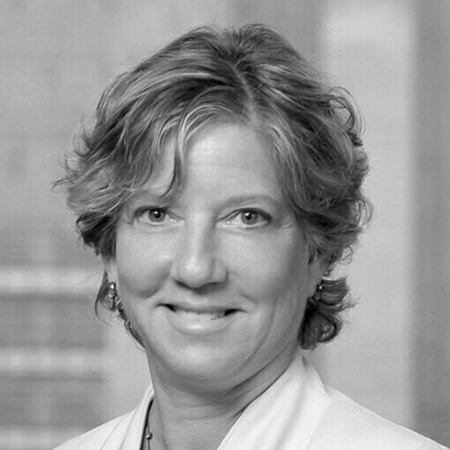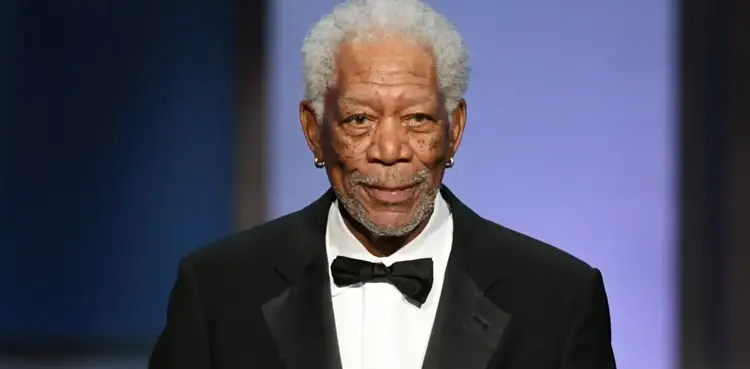Alumna Roberta Gordon invests in students for the future of the earth

From her perch in a hidden treehouse on the UC Santa Cruz campus, Roberta Gordon (Rachel Carson ’81, Chemistry/Environmental Science) once looked down on the farm and observed the research and teaching activities at the campus’s Center for Organic Agriculture. Over thirty years later, that same vision drives Gordon’s work as an environmental advocate and philanthropist, promoting sustainable practices and fighting for the planet’s well-being. Gordon’s journey from tree-climbing student to prominent environmental activist is as inspiring as it is impactful.
Science played a significant role in Gordon’s childhood on Long Island and in New York City. Her mother, Ida Gordon, was one of the first women to graduate from MIT; her godparents were physicists, and her neighbors were scientists who helped establish the Environmental Defense Fund. Oil spills in Long Island Sound during her childhood transformed her beloved beaches, an experience that she says deepened her understanding of the connection between science and the environment. That connection drew Gordon to UC Santa Cruz, where the university’s blend of science and nature helped sharpen her focus on environmental conservation—combining her scientific interests with her passion for preserving the Earth.
Gordon had a successful legal career focusing on environmental law, working in federal and state government in enforcement, regulation, and policymaking, as well as in private practice. As legal counsel in the Office of the General Counsel of the U.S. Environmental Protection Agency, she was instrumental in the development of environmental policies and regulations, where she was awarded a Gold Medal for Exceptional Service and a Bronze Medal for Meritorious Service. Now retired, Gordon brings her expertise to numerous boards on which she serves, including the Dean’s Council of the Department of Social Sciences at UC Santa Cruz.
Her philanthropic commitment follows the same focus and passion. Gordon established a family foundation, the Ida and Robert Gordon Family Foundation, in honor of her parents to continue her commitment to philanthropy for generations to come. The foundation is dedicated to addressing the intersection of climate and sustainable food systems, as well as other environmental issues, women’s health programs, arts and identity projects, social justice programs, and other current areas of need.
“Everything we support is invested with the aim of making an impact on environmental, social and corporate policy issues,” says Gordon.
That influence is amplified at UC Santa Cruz, where Gordon believes her support is a natural fit.
“I knew from the moment I stepped on campus that I wanted to give back,” she says.
Gordon’s first major grant to UC Santa Cruz was a five-year research project on no-till/spare tillage in organic farming. Thanks to her investment, the project is thriving.
“We believe we can lead the way and encourage others through our investments,” says Gordon. “We want to make a difference and fund scientific research that might not otherwise be funded. We want to make sure we stay on the cutting edge of our philanthropy.”
Gordon points out that the initial support of the farm is particularly meaningful to her because it puts the foundation’s goal of promoting climate protection and sustainable agriculture into action.
“The commitment, the results we achieved and the quality of the work made this one of the most meaningful grants we have ever awarded,” she says.
Gordon has also supported student research at the intersection of climate and agroecology. Last year, the foundation’s grant enabled the hiring of four UCSC students to support the work of the Center for Agroecology, advancing research and fostering a sense of belonging within its agricultural work.
“The Gordon Foundation’s support in recruiting these students was critical to our efforts,” says Darryl Wong, executive director of the Center for Agroecology. “We gave priority to students who not only excelled technically and could expand their expertise in agroecology research, but also shared our commitment to inclusive program development and building a robust informal infrastructure to support them.”
“The Gordons’ unwavering support inspires the next generation of agricultural scientists and changemakers by driving engagement in our facilities and programs,” says Wong. “It’s exciting to work with funders who are so passionate, committed and knowledgeable. As an attorney, Roberta brings a critical and deep understanding of the projects that makes her an idea partner as well as a donor.”
In honor of her father’s passionate advocacy for women’s rights and Planned Parenthood, especially at a time when men weren’t necessarily focused on these issues, Gordon founded the Women’s Financial Security, Food, and Health Community Internships at UC Santa Cruz in 2023 in the Center for Economic Justice and Action, formerly known as the Blum Center on Poverty, Social Enterprise, and Participatory Governance. Thanks to Gordon’s support, three UCSC interns got a sense of their professional options. Their participation in paid internships focused on women’s financial security, food, and health reinforced their understanding that they can contribute and excel in a range of fields and professions.
“Roberta thinks and invests strategically so that we can highlight the work of our great faculty and wonderful students,” says Katharyne Mitchell, dean of social sciences. “Others recognize how her thoughtful philanthropy has led to such great results – in programming, research, and exciting opportunities for young people – and they want to collaborate and engage with us. As a member of the dean’s office, she has been invaluable in sharing her insights and expertise with us.”
Gordon points out that her support for UC Santa Cruz is further enhanced by its status as a public institution.
“I think it’s important to think about the next generation and for donors to remember that they’re helping the next generation grow,” says Gordon. “We need to think about what we’re doing to help them move forward and support their development.”



